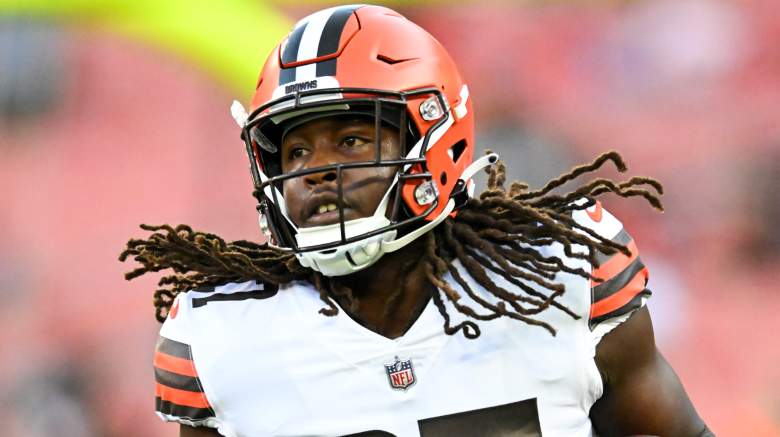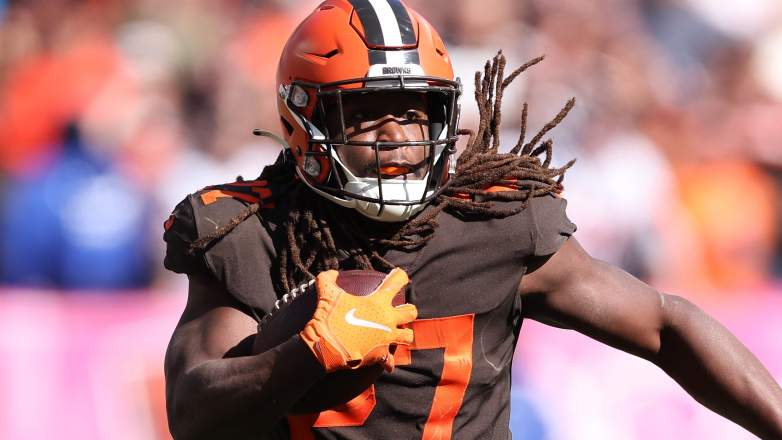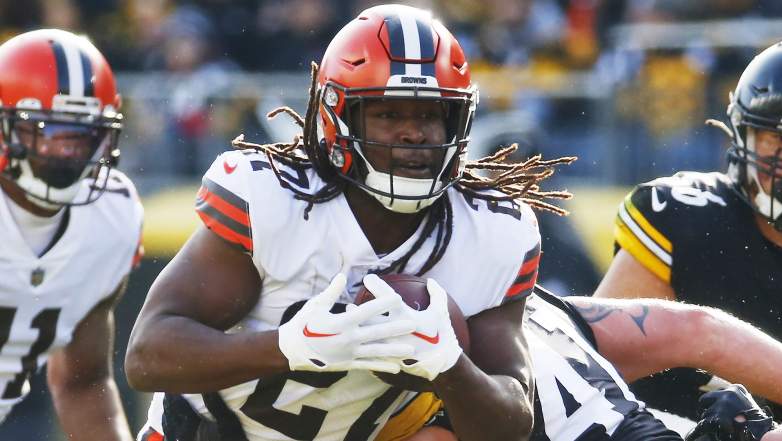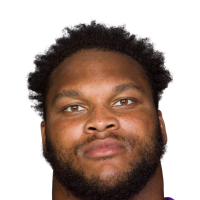
The Minnesota Vikings aren’t looking to spend big at the running back spot after parting ways with Dalvin Cook, but one free agent might allow the team to add serious talent to the position at value.
Kareem Hunt remains available after playing out a two-year, $12 million deal with the Cleveland Browns last season. While the RB is no longer the consistently explosive player who won the NFL rushing title in 2017 as a rookie with the Kansas City Chiefs, he remains a competent threat in both the run game and the passing attack and could serve as an adequate replacement for Cook at a better price point for the franchise.
That is part of the argument that former Vikings general manager Rick Spielman made recently when he pitched his former team as one of the top landing spots for Hunt around the league.
“Hunt’s touches decreased [behind Nick Chubb in Cleveland], but he’s still a powerful runner with excellent vision to catch the ball out of the backfield,” Spielman wrote for 33rd Team on July 1. “He had some durability issues last season, so he must show he can stay healthy because he turns 28 in August.”
There are a few other potential options for Hunt outside of Minnesota, but Spielman predicted the top two are likely to go in another direction.
“One is the Dallas Cowboys, although I anticipate Ezekiel Elliott will re-sign there. The second is the [Miami] Dolphins, but everyone is linking Cook there,” Spielman wrote. “Three is the Minnesota Vikings now that they’ve released Cook. They don’t have a proven commodity behind Alexander Mattison.”
Kareem Hunt Offers Vikings More Bang for Their Buck Than Dalvin Cook

GettyRunning back Kareem Hunt, formerly of the Cleveland Browns, is a short-term fit to replace Dalvin Cook with the Minnesota Vikings in 2023.
To be clear, Hunt can’t legitimately be mentioned in the same league as Cook — a Pro Bowler in each of his last four seasons. But that isn’t to say that Hunt’s overall production wouldn’t spike if his touches increased upon joining the Vikings, which they likely would.
Hunt averaged just shy of 4.25 yards per carry across nearly 450 attempts over his four-year tenure in Cleveland, per Pro Football Reference. Cook’s average was close to 4.7 yards per rush over the same span on well over twice the carries (1,075). However, Cook made more than twice as much in annual average salary ($12.6 million per season) than did Hunt ($6 million per year) over the last two campaigns.
Cook gained 1,399 receiving yards and scored three touchdowns on 170 catches over the last four seasons, while Hunt picked up 973 yards through the air and tallied seven TDs on 132 receptions over the same time period with the Browns. Cook was poised to cost the Vikings north of $14 million against the salary cap next season, while Hunt will be considerably cheaper wherever he signs in 2023 — potentially costing his next time roughly one-third of that amount, if not even less.
Vikings, Kareem Hunt Can Establish Mutually Beneficial Short-Term Relationship

GettyFree agent running back Kareem Hunt can help the Minnesota Vikings this upcoming season, and they can help him.
Hunt is used to sharing touches, as he has played second-fiddle to Chubb for the majority of his career. But the running back is hungry to prove himself an earn another big contract, evidenced by his choice to publicly voice displeasure with his deal in Cleveland ahead of the 2022 campaign.
That doesn’t exactly bode well for potential negotiations with the Vikings, but the market will dictate terms to Hunt — terms that are likely to result in a pay decrease for the dual-threat RB regardless of where he lands.
The Vikings are paying Mattison $7 million total over two years, and it would be unlikely the team would go considerably higher, if higher at all, for Hunt. That said, a one-year prove-it deal in Minnesota for $3-$4 million might prove more than palatable to Hunt in what should be a dynamic offense led by quarterback Kirk Cousins, wide receiver Justin Jefferson and tight end T.J. Hockenson in 2023.
Vikings head coach Kevin O’Connell has a successful background as an offensive coordinator, winning a Super Bowl with the Los Angeles Rams just two seasons ago. Hunt would be correct in believing that he can pump up his numbers, and by extension his contract value, with one healthy campaign in the Vikings’ offense.
Doing so would allow Hunt to re-establish his value as a No. 1 (or No. 1-A/B) running back and re-enter the free agent market at the age of 29 with the chance of securing one more considerable multiyear contract. Meanwhile, the Vikings would add insurance and bolster a backfield that could use it ahead of a season that the organization is dubbing the first of a competitive rebuild.
















































































Comments
Vikings Named Top Destination for $12 Million Dual-Threat RB